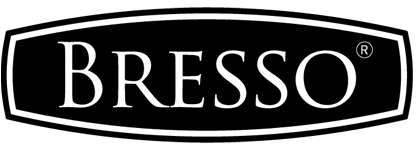What is a commercial convection oven?
A commercial convection oven is a specialized type of oven designed for use in commercial kitchens and foodservice establishments. It differs from conventional household ovens in several key ways to meet the high-volume cooking demands of restaurants, bakeries, catering businesses, and other commercial settings. Here are some defining characteristics of commercial convection ovens:
- High Capacity: Commercial convection ovens are typically larger than residential ovens, offering a higher cooking capacity. They come in various sizes to accommodate different kitchen spaces and production needs, ranging from countertop models to full-size units.
- Uniform Heat Distribution: These ovens feature a fan and exhaust system that circulates hot air evenly throughout the cooking chamber. This ensures consistent and uniform cooking, making them ideal for baking, roasting, and other cooking methods that require precise temperature control.
- Quick Cooking: The forced air circulation in commercial convection ovens results in faster cooking times compared to conventional ovens. This speed is particularly advantageous in busy commercial kitchens where efficiency is crucial.
- Versatility: Commercial convection ovens are versatile appliances that can handle a wide range of cooking tasks. They are suitable for baking bread and pastries, roasting meats and vegetables, cooking casseroles, and even dehydrating foods. Some models also offer steam injection capabilities, expanding their versatility further.
- Durability: These ovens are built to withstand the rigors of daily use in commercial settings. They often feature robust construction with stainless steel exteriors and heavy-duty components to ensure durability and ease of cleaning.
- Precise Temperature Control: Many commercial convection ovens offer precise temperature control, allowing chefs to set and maintain specific cooking temperatures. This level of control is essential for consistent results in commercial kitchens.
- Multiple Rack Positions: Commercial convection ovens typically come with multiple rack positions, allowing for flexible placement of trays and pans. This feature maximizes cooking space and accommodates various types of cookware.
- Energy Efficiency: Some models are designed with energy-saving features to help reduce operational costs. These features may include improved insulation, programmable timers, and standby modes.
- Ventilation Requirements: Due to their high cooking temperatures and ventilation needs, commercial convection ovens often require proper ventilation systems and hoods to remove heat, smoke, and odors from the kitchen.
- Safety Features: Commercial ovens may come equipped with safety features such as cool-touch doors, automatic shut-off timers, and temperature alarms to ensure safe operation in busy kitchens.
- Easy Maintenance: Many models are designed for easy maintenance, with removable components and self-cleaning options to simplify the cleaning process.
Commercial convection ovens are essential tools in professional kitchens, providing consistent and efficient cooking performance to meet the demands of commercial food preparation and production. They are commonly used in restaurants, bakeries, cafeterias, hotels, and various other foodservice establishments.
Commercial Convection Oven Buying Guide
Buying a commercial convection oven is an important decision for any foodservice business. These ovens are versatile and can be used for baking, roasting, and cooking a wide range of dishes. To make an informed purchase, consider the following factors in this commercial convection oven buying guide:
Type of Convection Oven:
- Standard Convection Oven: These ovens have a fan that circulates hot air evenly. They are suitable for baking and roasting.
- Combitherm/Combi Oven: These ovens offer both convection and steam cooking, making them highly versatile for various cooking methods.
Size and Capacity:
- Determine the physical space available in your kitchen.
- Consider the volume of food you need to cook regularly.
- Choose an oven size that matches your needs, whether it’s a countertop, half-size, or full-size oven.
Power Source:
- Commercial convection ovens are available in electric or gas models.
- Choose the one that aligns with your kitchen’s energy source and budget.
Temperature Range:
- Ensure the oven can reach the temperatures required for your cooking needs.
- Some ovens offer precise temperature control and programmable settings.
Control Panel and User Interface:
- Look for an easy-to-use control panel with intuitive settings.
- Consider ovens with programmable timers and preset cooking modes for convenience.
Construction and Durability:
- Ovens with stainless steel construction are durable and easy to clean.
- Inspect the door seals and hinges for quality and longevity.
Ventilation and Hood Requirements:
- Ensure your kitchen has proper ventilation and an appropriate hood system to handle the heat and steam generated by the oven.
Racks and Shelving:
- Check the number of racks or shelves included.
- Adjustable racks provide flexibility for various cooking needs.
Energy Efficiency:
- Look for ovens with energy-saving features or certification to reduce operational costs.
Cleaning and Maintenance:
- Consider ovens with easy-to-clean features, such as removable shelves and self-cleaning options.
- Regular maintenance is crucial for extending the oven’s lifespan.
Warranty and Support:
- Ensure the manufacturer offers a warranty that suits your needs.
- Research the manufacturer’s reputation for customer support and service.
Additional Features:
- Some ovens come with additional features like humidity control, touchscreen displays, and built-in recipe programs. Evaluate whether these are beneficial for your kitchen.
Price and Budget:
- Establish a budget and stick to it. Keep in mind that a higher upfront investment might result in long-term savings through energy efficiency and durability.
User Reviews and Recommendations:
- Read customer reviews and seek recommendations from other foodservice professionals to learn about their experiences with specific oven models.
Compliance and Regulations:
- Ensure the oven meets local safety and health codes and regulations.
Delivery and Installation:
- Plan for delivery and professional installation, as commercial convection ovens can be heavy and require specific setup.
By carefully considering these factors and conducting thorough research, you can select the right commercial convection oven to meet the specific needs of your foodservice establishment. Make sure to consult with equipment suppliers and experts to make an informed decision.
Commercial Convection Deck Ovens For Sale
InquiryCommercial Convection Deck Ovens
Please write your questions and demand information, we will reply you as soon as possible!




